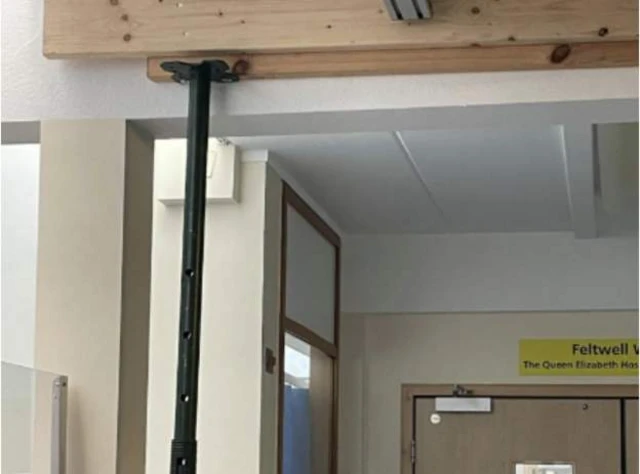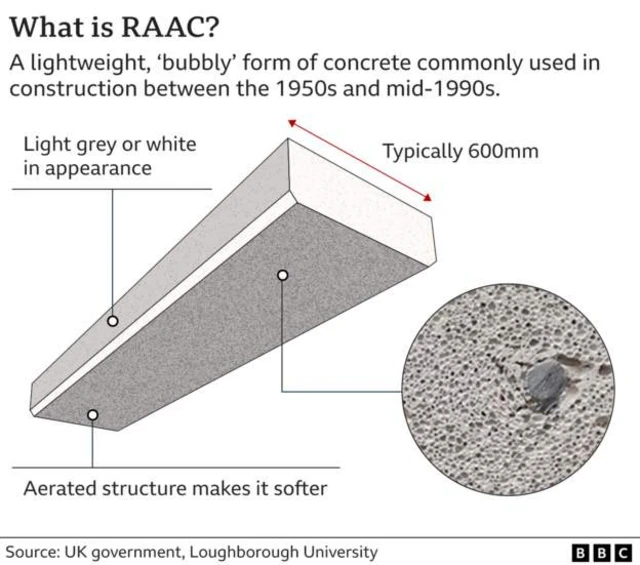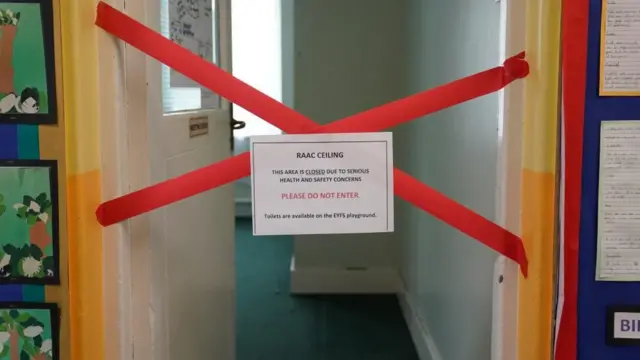Lack of urgency from government over RAAC, headteacher sayspublished at 08:46 BST 2 September 2023
A headteacher in a school affected by RAAC has said the Department for Education has shown a "lack of urgency" over dealing with the issue.
Cas Evans, the headteacher of Parks Primary School in Leicester, told BBC Breakfast the school had to relocate several classes and borrow rooms from other institutions in May after the discovery of RAAC.
Evans says the school has racked up around £30,000 in costs while organising alternative facilities, with the DfE saying "up until now" this would need to be covered by the school budget.
The DfE now says it will fund costs, external, though Evans says she has not been told this directly.
Speaking about the government's response to the issue, she adds: "There seems to be a lack of urgency. There are big questions that need to be answered."


